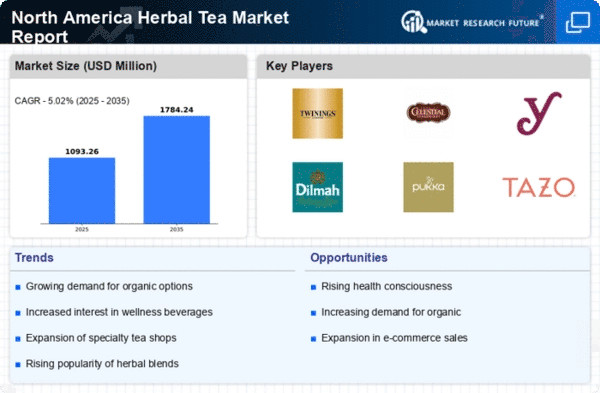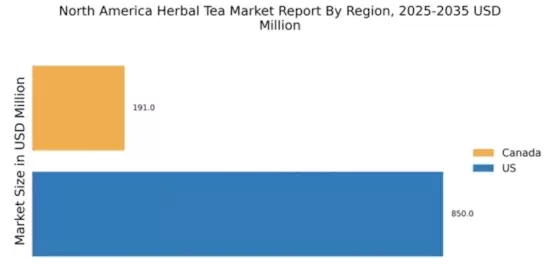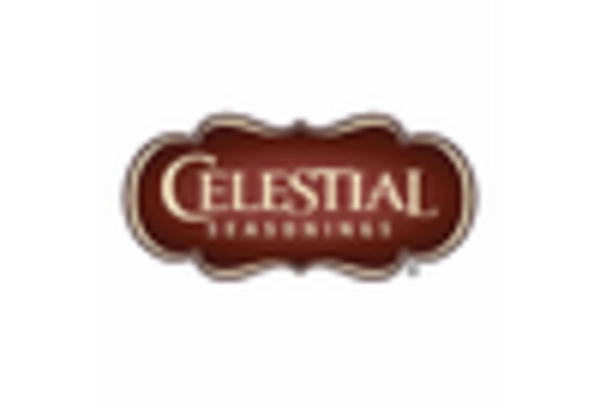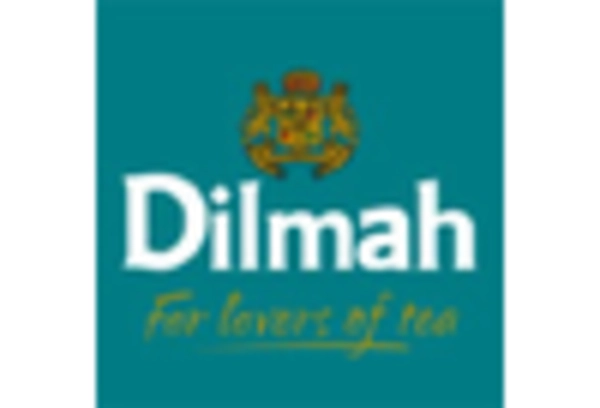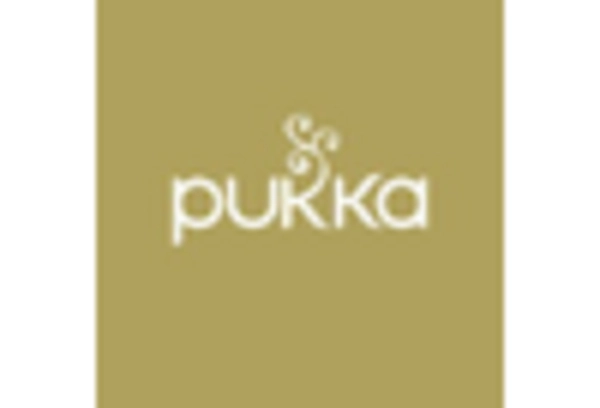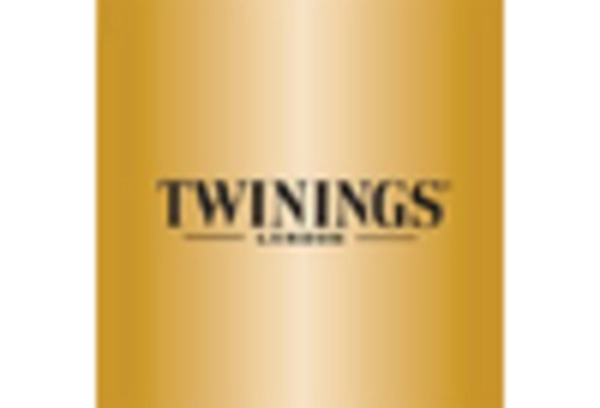Increased Online Retailing
The shift towards online shopping is a crucial driver for the herbal tea market in North America. E-commerce platforms have become essential for consumers seeking convenience and variety in their herbal tea purchases. Recent data indicates that online sales of herbal teas have surged, accounting for nearly 25% of total sales in the sector. This trend is likely to persist as consumers increasingly prefer the ease of purchasing from home. Furthermore, online retailers often provide access to a wider range of products, including niche and specialty herbal teas that may not be available in physical stores. As the digital landscape continues to evolve, the herbal tea market is poised to capitalize on this trend, enhancing accessibility and driving sales growth.
Rising Health Consciousness
The increasing awareness of health and wellness among consumers is a pivotal driver for the herbal tea market in North America. As individuals seek natural alternatives to traditional beverages, herbal teas are perceived as healthier options. This trend is reflected in market data, indicating that the herbal tea segment has experienced a growth rate of approximately 8% annually. Consumers are gravitating towards herbal teas for their perceived benefits, such as improved digestion and enhanced immunity. This shift towards health-conscious choices is likely to continue, as more people prioritize their well-being and seek products that align with their lifestyle. The herbal tea market is thus positioned to benefit from this growing demand, as brands innovate to offer diverse flavors and blends that cater to health-oriented consumers.
Cultural Influences and Trends
Cultural shifts and trends play a significant role in shaping the herbal tea market in North America. The growing popularity of wellness cultures, influenced by various global traditions, has led to an increased interest in herbal teas. For example, the incorporation of traditional herbal remedies from different cultures is becoming more mainstream. This cultural blending is reflected in market data, which suggests that herbal teas inspired by Asian and Mediterranean traditions are gaining traction among North American consumers. As these cultural influences continue to permeate the market, the herbal tea industry is likely to see a diversification of offerings, appealing to a wider demographic and enhancing overall market growth.
Innovative Product Development
Innovation in product offerings is a significant driver for the herbal tea market in North America. Companies are increasingly introducing unique blends and flavors, appealing to a broader audience. For instance, the incorporation of adaptogenic herbs and superfoods into herbal tea formulations is gaining traction. This trend is supported by market data showing that innovative products can command higher price points, with premium herbal teas often retailing for 20-30% more than standard options. Additionally, the rise of functional herbal teas, which target specific health concerns, is likely to attract health-conscious consumers. As brands continue to explore new ingredients and formulations, the herbal tea market is expected to expand, catering to diverse consumer preferences and enhancing overall market growth.
Sustainability and Ethical Sourcing
Sustainability and ethical sourcing are increasingly important drivers for the herbal tea market in North America. Consumers are becoming more discerning about the origins of their products, favoring brands that prioritize environmentally friendly practices. This trend is supported by market data indicating that approximately 60% of consumers are willing to pay a premium for sustainably sourced herbal teas. As a result, companies are adopting transparent sourcing practices and emphasizing their commitment to sustainability in marketing efforts. This focus on ethical sourcing not only appeals to environmentally conscious consumers but also enhances brand loyalty. The herbal tea market is thus likely to benefit from this growing demand for sustainable products, as brands align their practices with consumer values.


